Do you really know what effective studying is? Maybe not! This article will discuss some tips and tricks to help you to maximise your success when studying. It is important to remember that every student has different ways of studying that work for them, but here are some useful tips:
There are a lot of misconceptions about what “studying” really is. One of the most common misconceptions is that reading through notes is a good way of studying. This is not true! Reading is a passive activity, making it very difficult to retain information. Therefore, reading your notes is actually one of the most ineffective forms of study. Instead, working on practice questions and past papers is one of the best ways to go – at the end of the day, you will be sitting exams for the HSC!
Completing practice exams are not the only effective way to study. Most
people fall into two categories of learning styles – visual learners, who learn
best by seeing things, and auditory learners, who find it easier to learn by
hearing and listening. For visual learners, making flashcards, colour coding and drawing pictures are helpful. Auditory learners retain information better by reading out loud or recording themselves speak and then playing it back. I used this technique for speaking exams and found that the information had really sunk in! There is also another type of learner – a kinaesthetic learner prefers to learn through physical, “hands-on” activities. Moving around while studying, whether it be walking or dancing, can be useful for kinaesthetic learners.
But how can you ensure that you can remember everything when you are studying? When I was in my final year of school, I came across a StudyTuber called UnJaded Jade on YouTube, who spoke about a study technique known as blurting. Blurting is the process of setting a timer, writing everything you remember about a topic on a piece of paper, and filling in the blanks afterwards to determine where the knowledge gaps are. This method can be very useful when it comes to science and humanities subjects, which often require a lot of memorisation.
At school, especially in Years 11 and 12 when things get more serious, it is
crucial to maintain a work life balance. Keeping a balance often gets overlooked and is seen by some students as less important than their assignments and exams. This couldn’t be further from the truth! It is important to continue other activities outside of school to keep physically and mentally healthy, which in turn can improve overall performance at school. Studying should be planned around other activities, not vice versa. For some, it can be helpful to have a break between getting home from school and studying, whereas others find that they are in the “zone” for studying at this time. The same can be said for after dinner time, as some prefer to study at night, because that is when they are most focused, but many prefer to wind down in the evening. It is important to find the right time for you to study during the week. Also, if you’re a procrastinator, a helpful way to reduce this is to make a timetable for one week and write what you do on an hourly basis, excluding school hours if necessary, so that you can easily see where time is wasted through procrastinating.
Hopefully these tips can help you to work smarter, not harder!
By Emily Diamant, an Alchemy tutor




